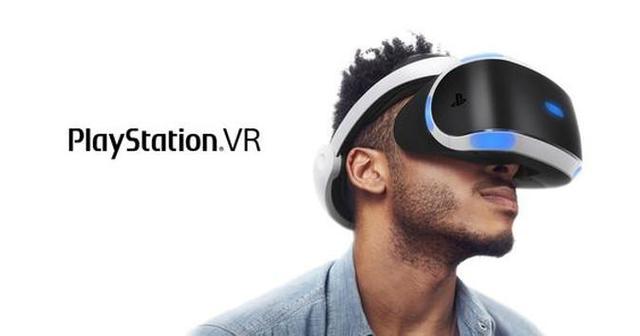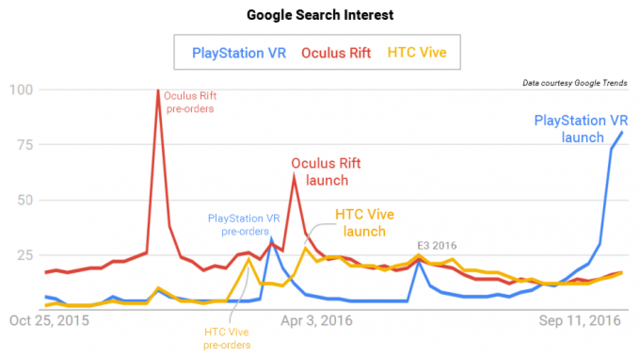How much fire does Sony PS VR have? Let the search data tell you
After Mangofish entered the Oculus VR and HTC Vive, Sony finally released its own VR platform, the PlayStation VR, considering that it is the cheapest option among the three and the huge potential buyers of 40 million PlayStation 4 players. People think that PlayStation VR will be the most popular VR product this year, but is this really the way it is? Better to find answers from search volume data!

The data shows that both Oculus VR and HTC Vive have a significant peak in search volume growth in their respective scheduled and official launches, and then the overall trend has been steadily lower. In contrast, PlayStation VR's search volume trend is a bit different. Although there are peaks at the time of booking and selling, the degree of attention is actually lower than that of Oculus VR. Basically, it is also related to HTC VR. Flat. However, after this year's E3 exhibition, the search volume of PlayStation VR began to increase exponentially, and such a strong future performance was not found in Oculus VR and HTC Vive.

Of course, gratifying search volume does not mean that it can eventually be translated into matching market performance and shipments. However, in terms of general market logic, if users want to buy a product, the premise should be to pass some path first. To understand, search volume in the Internet age can explain the problem. However, Sony did not make much effort in promoting PlayStation VR. In addition to advertising on TV, it even cooperated with Mexico’s fast-food brand Taco Bell and launched a free-to-eat snack game called PlayStation VR. You should also know about PlayStation VR.
Sony's other big advantage is that it has a large potential user base. A small portion of the 40 million PlayStation 4 users who purchase PlayStation VR are already very impressive in terms of volume, and for them, it may not be the same as PlayStation VR.
Source: ROADTOVR